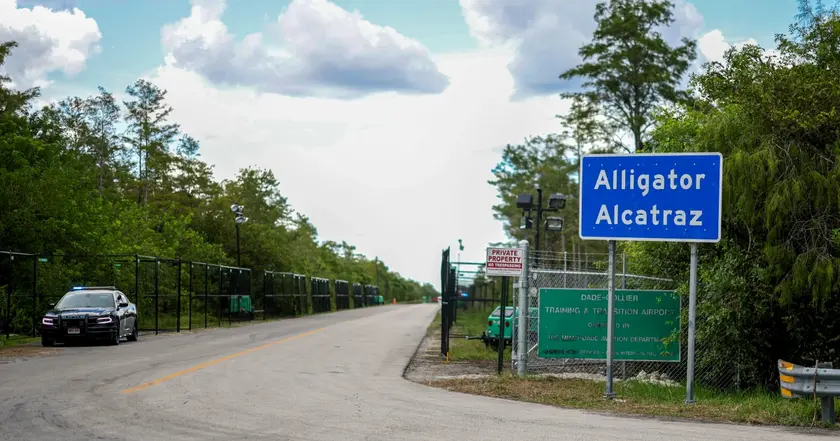T4K3.news
Fishing halted in Pacific protected area
A Hawaii judge blocks Trump's order expanding commercial fishing in the Pacific Islands Heritage Marine National Monument, pausing resumed fishing near Johnston Atoll, Jarvis Island and Wake Island.

A Hawaii judge blocks parts of a Trump order that opened a large Pacific protected area to commercial fishing, restoring protections while a legal challenge proceeds.
Fishing halted in vast Pacific nature area after judge blocks Trump order
HONOLULU The federal case shows a push and pull between conservation rules and executive actions. A judge in Hawaii halted commercial fishing in portions of the Pacific Islands Heritage Marine National Monument after environmental groups challenged a Trump administration rollback. The monument spans about 500,000 square miles in the central Pacific, around Johnston Atoll, Jarvis Island and Wake Island. Following the order, the National Marine Fisheries Service sent a letter allowing fishing within the monument; fishing resumed for a short period before the court stepped in. Earthjustice, representing Native Hawaiian plaintiffs, argued the change removed core protections without public notice or rulemaking. U.S. District Judge Micah W. J. Smith granted the motion, ruling the government forfeited that defense on the merits and dismissing other arguments about standing and jurisdiction. The ruling directs the government to undertake a formal process to decide what kind of fishing, and under what conditions, can occur in monument waters to avoid harming the area. Earthjustice says the decision preserves meaningful protections and public engagement. Government attorneys did not immediately respond to requests for comment.
Key Takeaways
"The government forfeited that argument on the merits."
Judge Smith's ruling on the defense about the letter
"Smith's ruling requires the government to go through a process to determine what kind of fishing, and under what conditions, can happen in monument waters in a way that wouldn't destroy the area."
Earthjustice attorney comments on ruling
"Harming the cultural and subsistence interests of Native Hawaiian communities is not acceptable."
Lawsuit focus on indigenous rights and heritage
"The ruling shows courts can check executive power when public resources are at stake."
Editorial takeaway on legal implications
The decision underscores a persistent tension between rapid policy shifts and long term stewardship of public resources. It signals that courts may constrain executive attempts to roll back protections without a transparent rulemaking process. For communities relying on conservation as a cultural and subsistence anchor, the ruling reinforces that legal channels matter as much as political will. It also raises questions about how future administrations will handle expanding or redefining protected areas in fast changing political climates. The case could slow similar rollbacks and set a precedent for how environmental safeguards are governed in the remote Pacific.
Highlights
- The government forfeited that argument on the merits.
- Smith's ruling requires the government to go through a process to determine what kind of fishing can occur.
- This case tests how far executive power can be checked when public resources are at stake.
- Protecting this area is essential for both nature and culture.
Political and environmental policy risk
The ruling highlights ongoing tensions between executive deregulation and environmental protections, with potential political backlash and budgetary implications if more protections are challenged. Public reaction could influence future policy and investment in sustainable fisheries.
The sea will keep its watch while the legal process plays out.
Enjoyed this? Let your friends know!
Related News

Court blocks fishing in Pacific Islands monument

Illegal mercury trade expands amid cartel activities

Neurologists warn about foods that threaten brain health

WWF report reveals alarming wildlife population decline

Europe to fund Ukraine defense continues

Vanuatu seeks opinion from International Court about climate change

Judge halts construction at Alligator Alcatraz facility

World leaders pledge historic biodiversity agreement
